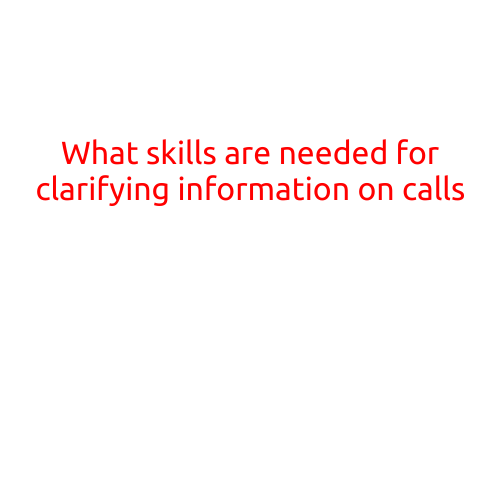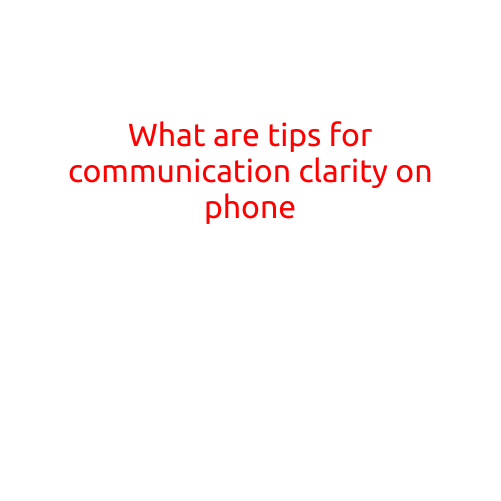
What Skills are Needed for Clarifying Information on Calls
Clear communication is essential in today’s fast-paced business environment, particularly over the phone. As a customer service representative, salesperson, or employee handling calls, it’s crucial to clarify information accurately and efficiently to avoid misunderstandings, miscommunications, and lost opportunities. In this article, we’ll explore the essential skills needed for clarifying information on calls.
Active Listening
Active listening is the foundation of effective communication. To clarify information, you must first listen attentively to the caller’s concerns, needs, and queries. This involves:
- Giving your undivided attention to the caller
- Avoiding distractions and multitasking
- Focusing on the caller’s words, tone, and emotions
- Asking clarifying questions to ensure understanding
- Paraphrasing and summarizing the caller’s concerns to ensure accuracy
Repeat and Confirm
Repeating and confirming the information shared by the caller is vital to ensure accuracy and avoid misinterpretation. This involves:
- Repeating the caller’s concerns or requests to ensure understanding
- Conferring the caller’s information to verify accuracy
- Asking if the information is correct or if there are any additional details to share
Asking Open-Ended Questions
Asking open-ended questions encourages the caller to provide more information, allowing you to clarify their needs and concerns. This type of questioning:
- Encourages the caller to share their thoughts and feelings
- Provides more detailed information about the caller’s needs
- Helps you to clarify any ambiguity or misunderstanding
Empathy and Understanding
Empathy and understanding are crucial in building trust and rapport with the caller. By showing you care and are genuinely interested in the caller’s concerns, you can:
- Establish a positive relationship with the caller
- Encourage them to share more information
- Clarify their needs and concerns more effectively
Analytical Thinking
Analytical thinking helps you to break down complex information, identify patterns and relationships, and clarify ambiguities. This involves:
- Identifying key points and prioritizing information
- Breaking down complex information into smaller, manageable parts
- Applying logical reasoning and problem-solving skills
Time Management and Organization
Effective time management and organization skills enable you to handle multiple tasks, prioritize information, and clarify information efficiently. This involves:
- Managing your time effectively to handle multiple calls and tasks
- Organizing information and prioritizing tasks
- Staying focused and avoiding distractions
Collaboration and Documentation
Collaboration and documentation are essential in clarifying information and ensuring accuracy. This involves:
- Documenting relevant information and details
- Sharing information with other team members or stakeholders
- Collaborating with other departments or teams to resolve issues and clarify information
Conclusion
Clarifying information on calls requires a range of skills, including active listening, repeat and confirm, asking open-ended questions, empathy and understanding, analytical thinking, time management and organization, and collaboration and documentation. By developing these skills, you can improve communication, reduce misunderstandings, and increase customer satisfaction and loyalty.





